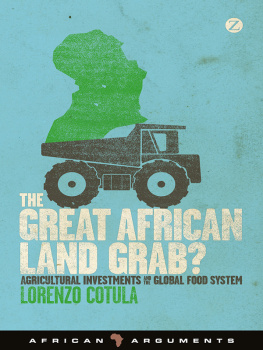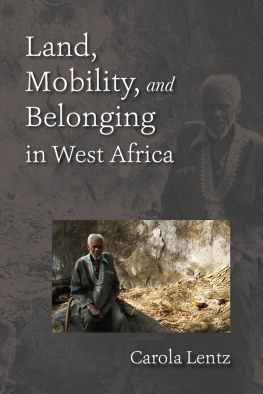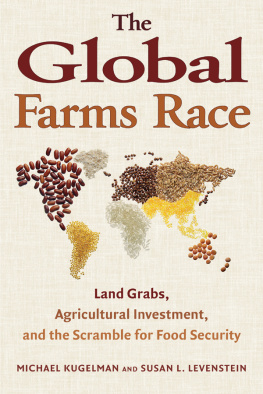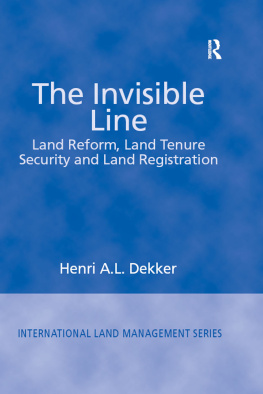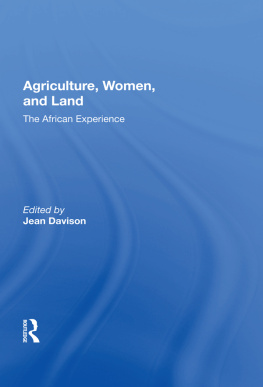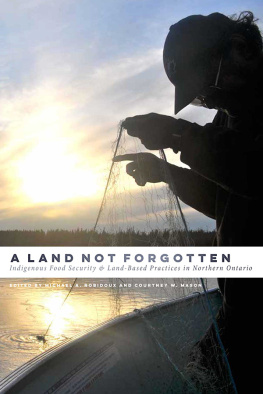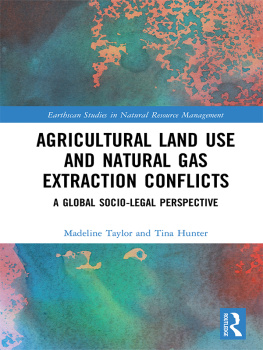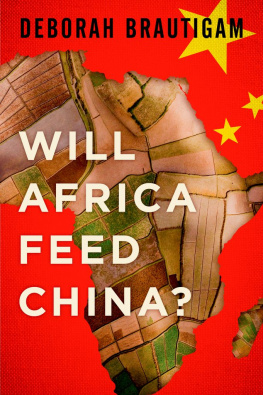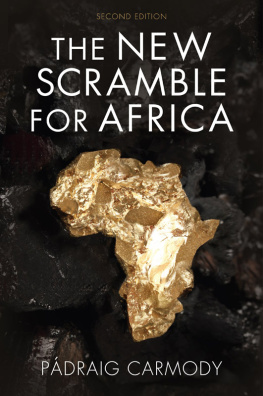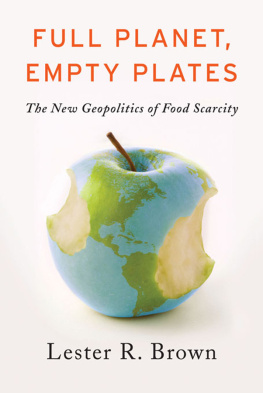
African Arguments
Written by experts with an unrivalled knowledge of the continent, African Arguments is a series of concise, engaging books that address the key issues currently facing Africa. Topical and thought-provoking, accessible but in-depth, they provide essential reading for anyone interested in getting to the heart of both why contemporary Africa is the way it is and how it is changing.
African Arguments Online
African Arguments Online is a website managed by the Royal African Society, which hosts debates on the African Arguments series and other topical issues that affect Africa: http://africanarguments.org
Series editors
ALEX DE WAAL, executive director, World Peace Foundation
RICHARD DOWDEN, executive director, Royal African Society
ALCINDA HONWANA, Open University
Editorial board
EMMANUEL AKYEAMPONG, Harvard University
TIM ALLEN, London School of Economics and Political Science
AKWE AMOSU, Open Society Institute
BREYTEN BREYTENBACH, Gore Institute
PETER DA COSTA, journalist and development specialist
WILLIAM GUMEDE, journalist and author
ABDUL MOHAMMED, InterAfrica Group
ROBERT MOLTENO, editor and publisher
Titles already published
Alex de Waal, AIDS and Power: Why There is No Political Crisis Yet
Tim Allen, Trial Justice: The Lords Resistance Army, Sudan and the International Criminal Court
Raymond W. Copson, The United States in Africa: Bush Policy and Beyond
Chris Alden, China in Africa
Tom Porteous, Britain in Africa
Julie Flint and Alex de Waal, Darfur: A New History of a Long War , revised and updated edition
Jonathan Glennie, The Trouble with Aid: Why Less Could Mean More for Africa
Peter Uvin, Life after Violence: A Peoples Story of Burundi
Bronwen Manby, Struggles for Citizenship in Africa
Camilla Toulmin, Climate Change in Africa
Orla Ryan, Chocolate Nations: Living and Dying for Cocoa in West Africa
Theodore Trefon, Congo Masquerade: The Political Culture of Aid Inefficiency and Reform Failure
Lonce Ndikumana and James Boyce, Africas Odious Debts: How Foreign Loans and Capital Flight Bled a Continent
Mary Harper, Getting Somalia Wrong? Faith, War and Hope in a Shattered State
Gernot Klantschnig and Neil Carrier, Africa and the War on Drugs: Narcotics in Sub-Saharan Africa
Alcinda Honwana, Youth and Revolution in Tunisia
Marc Epprecht, Sexuality and Social Justice in Africa: Rethinking Homophobia and Forging Resistance
Forthcoming
Michael Deibert, The Democratic Republic of Congo: Between Hope and Despair
Gerard McCann, India and Africa Old Friends, New Game
Adam Branch and Zachariah Mampilly, Popular Protest in Africa
Published by Zed Books with the support of the following organizations:
International African Institute promotes scholarly understanding of Africa, notably its changing societies, cultures and languages. Founded in 1926 and based in London, it supports a range of seminars and publications including the journal Africa .
www.internationalafricaninstitute.org
Royal African Society is Britains prime Africa organization. Now more than a hundred years old, its in-depth, long-term knowledge of the continent and its peoples makes the Society the first stop for anyone wishing to know more about the continent. RAS fosters a better understanding of Africa in the UK and throughout the world its history, politics, culture, problems and potential. RAS disseminates this knowledge and insight and celebrates the diversity and depth of African culture.
www.royalafricansociety.org
World Peace Foundation , founded in 1910, is located at the Fletcher School, Tufts University. The Foundations mission is to promote innovative research and teaching, believing that these are critical to the challenges of making peace around the world, and should go hand in hand with advocacy and practical engagement with the toughest issues. Its central theme is reinventing peace for the twenty-first century.
www.worldpeacefoundation.org
About the author
Lorenzo Cotula is a senior researcher and team leader at the International Institute for Environment and Development (IIED), where he works on land and on natural resource investment in lower-income countries. Lorenzo undertakes research, capacity building, policy advocacy and advisory work at field, national and international levels. Before joining IIED in 2002, he worked on assignments with the Food and Agriculture Organization of the UN and with two Italian NGOs. Lorenzo holds a law degree from the University La Sapienza of Rome, an MSc in development studies from the London School of Economics, a PhD in law from the University of Edinburgh, and a Postgraduate Certificate in Sustainable Business from the University of Cambridge.
LORENZO COTULA
The great African land grab?
Agricultural investments and the global food system
Zed Books
LONDON | NEW YORK
The great African land grab? Agricultural investments and the global food system was rst published in 2013 by Zed Books Ltd, 7 Cynthia Street, London N1 9JF, UK and Room 400, 175 Fifth Avenue, New York, NY 10010, USA
This ebook edition was first published in 2013
www.zedbooks.co.uk
Copyright Lorenzo Cotula 2013
The right of Lorenzo Cotula to be identied as the author of this work has been asserted by him in accordance with the Copyright, Designs and Patents Act, 1988.
Set in OurType Arnhem and Futura Bold by Ewan Smith, London
Index: <>
Cover design: www.roguefour.co.uk
All rights reserved. No part of this publication may be reproduced, stored in a retrieval system or transmitted in any form or by any means, electronic, mechanical, photocopying or otherwise, without the prior permission of Zed Books Ltd.
A catalogue record for this book is available from the British Library
US CIP data are available from the Library of Congress
ISBN 978 1 78032 312 1
Contents
Acknowledgements
This book builds on insights that I have gained over the years through my work at the International Institute for Environment and Development (IIED), a policy research institute based in the United Kingdom. This work includes research and policy advocacy on large-scale land acquisitions and agricultural investments in Africa. In particular, it includes the Legal Tools for Citizen Empowerment initiative, an effort to strengthen local rights vis--vis large-scale natural resource investments in lower-income countries. These activities involve extensive travelling, and collaboration with colleagues at IIED and with partners in Africa and elsewhere. So my first heartfelt thank-you goes to IIED and the partners around it for giving me the opportunity to learn about issues that I am passionate about.
IIEDs work on the global land rush has been supported through multiple collaborations with development agencies, particularly the Food and Agriculture Organization of the United Nations, the International Fund for Agricultural Development, Oxfam and the International Development Research Centre. It has also been supported by the United Kingdom governments Department for International Development and by a consortium of European donors that has included, at different times, Danida (Danish International Development Agency), DGIS (Directorate-General for Development Cooperation, the Netherlands), Irish Aid, Norad (Norwegian Agency for Development Cooperation), SDC (Swiss Agency for Development and Cooperation) and Sida (Swedish International Development Agency). In addition, IIEDs work on land tenure receives support from the Bill & Melinda Gates Foundation, particularly a grant to secure local land rights in parts of West Africa where small-scale agriculture is intensifying. I would like to thank these donors and partners for their support, though I should also make it clear that the views expressed in this book are mine and do not necessarily reflect those of the institutions involved.
Next page
